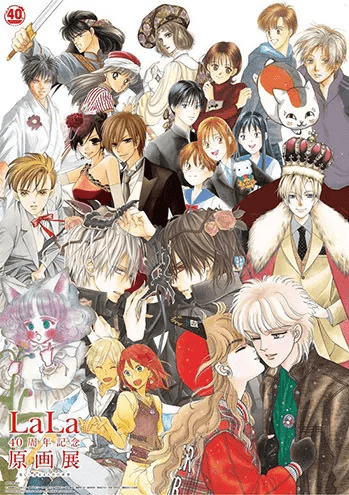The official discord link if you wish to join the discord: https://discord.gg/j5RKwCvAFu
Support the wiki on our official Ko-Fi page or Patreon page!
Category:Shojo

Shōjo manga (少女漫画, lit. "girls' comics", also romanized as shojo or shoujo) is an editorial category of Japanese comics targeting an audience of adolescent females and young adult women. It is, along with shōnen manga (targeting adolescent boys), seinen manga (targeting young adult and adult men), and josei manga (targeting adult women), one of the primary editorial categories of manga. Shōjo manga is traditionally published in dedicated manga magazines, which often specialize in a particular readership age range or narrative genre.
Shōjo manga originated from Japanese girls' culture at the turn of the twentieth century, primarily shōjo shōsetsu (girls' prose novels) and jojōga (lyrical paintings). The earliest shōjo manga was published in general magazines aimed at teenagers in the early 1900s, and entered a period of creative development beginning in the 1950s as it began to formalize as a distinct category of manga. While the category was initially dominated by male manga artists, the emergence and eventual dominance of female artists beginning in the 1960s and 1970s led to a period of significant creative innovation, and the development of more graphically and thematically complex stories. Since the 1980s, the category has continued to develop stylistically while simultaneously branching out into different and overlapping subgenres.
Strictly speaking, shōjo manga does not refer to a specific style or a genre, but rather indicates a target demographic. While there are certain aesthetic, visual, and narrative conventions associated with shōjo manga, these conventions have changed and evolved over time, and none are strictly exclusive to shōjo manga. Nonetheless, several concepts and themes have come to be typically associated with shōjo manga, both visual (non-rigid panel layouts, highly detailed eyes) and narrative (a focus on human relations and emotions; characters that defy traditional roles and stereotypes surrounding gender and sexuality; depictions of supernatural and paranormal subjects).
Pages in category "Shojo"
The following 8 pages are in this category, out of 8 total.
